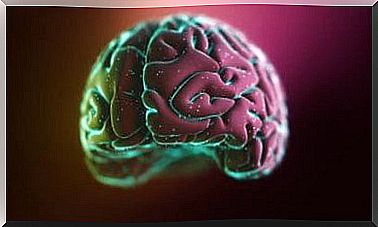Depressive Thoughts, The Mental Labyrinth That Corners Us

Depressive thoughts are one more factor in those complex mechanisms that shape this mood disorder. In this way, whoever gives power and “privileges” to negative internal dialogue ends up creating a mental scenario ruled by the habit of negativity, wear and tear, and helplessness. In those worlds, hope is barely glimpsed.
People experiencing depression are seldom aware of how their thinking style fuels and intensifies their distress and discomfort. It is clear that this psychological condition has several causes and factors that determine it, but our cognitions are an important part of that puzzle. Assume it, take responsibility for it, not easy.
It is not easy for several reasons. People assume that thoughts arise in our minds spontaneously and freely, when in reality many of our ideas and reasoning are conditioned. Conditioned by the education received, by the assessment we make of our experiences, by refined defense mechanisms, by illogical reasoning, etc.
Also, thoughts are affected by our mood. In this sense, although we cannot always control how we feel, we can exert control over our style of thinking.
This explains why cognitive therapy (focused on helping us control and put thoughts and perceptions in our favor) is one of the most suitable for treating depression.

Depressive thoughts how to detect them?
A depression presents a wide symptomatology in which, on the one hand, physical factors (exhaustion, numbness, hypersomnia or insomnia) as well as emotional factors and also, of course, cognitive aspects intermingle.
Thus, distorted and negative thoughts make up that almost decisive ingredient to further intensify the jail of a depressive disorder.
One example, studies such as those carried out at the University of Luxembourg by Dr. Claus Vogele and his team highlight the importance of detecting depressive thoughts to diagnose this condition.
Thus, something that could be seen in an exhaustive investigation of a group of people between 16 and 49 years old is that people are not always aware of how their ideas and internal dialogues undermine their psychological health until they lead to anxiety disorders and depression.
However, each mental product conditions us for better or for worse. This in turn fits very well with the theory proposed to us by the American psychiatrist Aaron T. Beck in 1976. It is about the cognitive triad of depression , in which it is explained that this disorder is determined by three basic dimensions:
- The person’s negative thoughts about the world in general.
- Negative ideas about yourself.
- Negative judgments about the future.
Being aware that what happens in our mind is key to mediate our well-being or suffering. Therefore, let’s know other types of depressive thoughts to consider.

Tendency to generalize the negative
“If we showed up for a job interview a week ago and they didn’t catch us… why try again if it is clear that no one is going to select us? ». “If I went to see a friend yesterday and she was not at home … why should I come back today or send her a message if most likely she no longer wants to talk to me?”
This type of reasoning builds walls. They are like fences that the depressive mind builds to corner us, to leave us without air or a hint of hope. It is something that should be detected as soon as possible.
A mind that selects the worst of each day
It is very difficult for an event to be valued as positive if it is viewed through the filter of depression. His gaze only focuses on the negative, selects it and gives it an absolute relevance as well as destructive. It does not matter that many more positive, relaxed and kind things have happened … They will only see the most adverse, however insignificant it may be.
For example, it doesn’t matter that my vacation starts today and I’m going on a trip tomorrow. If today I have lost the subway, that has conditioned everything.
I am responsible for everything that happens
I carry the weight of the world, all responsibility falls on me. If someone around me is unhappy, I am the cause, because I have done something wrong …
If a family member gets sick, it will also be my fault, as it will be if two colleagues argue at work or if my son fails that subject at school.
Depressive thinking inevitably revolves around self-punishment, irrational as it may be.
Tendency to predict fatalisms
The person with a mood disorder fears one aspect above all else: the future. The pressure of what may happen tomorrow is anguish, and it does so because the mind places great fatalities on that horizon. Indeed, one more feature of depressive thoughts is that tendency to fatalism, to predict tomorrow in an adverse way.
Nothing that may happen will be in our favor …
Dichotomous thinking
For a patient with depression there are no intermediate situations, only extremes: either I can’t handle anything or I can handle everything or I get over this or this ends up with me. There is nothing in that center that allows you to see things differently, because thinking is distorted, and in that world of black and white there are no intermediate hues with which to glimpse a minimum sense of hope to fight for.
They are, as we see, very complex realities.

To conclude, depressive thoughts take root in the mind in a deep, painful way … And what is worse, they can remain there as seeds of suffering for months and years. It is not the right thing to do . We can (and should) take steps to change these thought patterns, and one way to do this is through psychological approaches like cognitive therapy.
Let’s keep it in mind.









